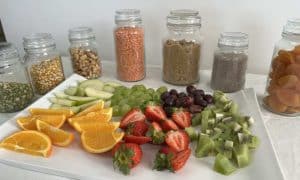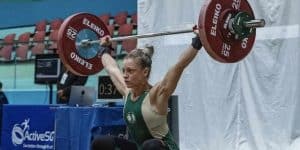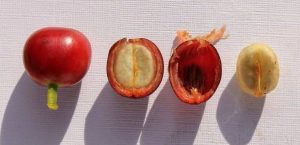The Game Changers – Misleading or Reliable?

Yep. You’ve probably seen it. If not, you’ve heard about it. You may have even changed your entire eating pattern after watching it.
I must admit, after my first viewing it appeared amazingly convincing… possibly groundbreaking and transformational. As a university-trained and now experienced dietitian, how had I not been exposed to all of this seemingly compelling evidence?
But now the dust has settled, a more reasoned view from the wider scientific community has surfaced.
Health professionals are bound ethically and morally to provide information that is based on quality research and scientific data. Filmmakers are not bound to utilise the same filters, and further use emotion and cinematic storytelling to accentuate their points. ‘Documentaries’ are supposed to provide a balanced viewpoint and allow the viewer to make a judgement, but there is minimal balance in this film. All of the main drivers of the film and experts interviewed have a vested interest in veganism, and it uses elite athletes and celebrities to drive home their messages.
The film has the appearance of being highly scientific – the writers know that this is essential.
However, the film is guilty of cherry picking the research– only including evidence that suits the agenda, such as:
- Re-wording or misinterpreting results
- Lower level quality studies (with risk of confounding, population or observational studies, small sample sizes)
- Ignoring some higher quality larger scale studies with an opposing view.
The main undertone in the movie that ‘plant-based’ must mean elimination of all animal products.
EVIDENCE
There are many more examples that have come under criticism in the film, but below are some examples of misleading information.
- The bone analysis of the mighty Roman Gladiator (the original carb loading gangsters) at a site in Ephesus, Turkey. Yes, the blue flame when testing strontium is indicative of a diet with high grains (barley and legumes), but does NOT indicate the Gladiators avoided meat altogther. Both omnivores (plant + meat) and herbivores (plant only) would provide the same result. Archaeologists suggest this diet was to fatten them up for fighting, making them harder to kill. Another site showed higher sulfur content, indicating higher fish intake. This information was omitted as it didn’t fit the narrative.
- The meat vs bean burrito experiment which compares the effects of meat on endothelial function, or narrowing of arteries, is not a scientifically validated study. The cloudiness of the samples only indicates a higher fat meal, which does not confirm endothelial dysfunction (which they were implying by conveniently talking about at the same time).
| NB Evidence indicates that dairy, white meat, fish, eggs and even lean red meat do not contribute to endothelial dysfunction, rather it is more likely total energy and total fat. |
Further evidence is cited from various sources regarding the effects of plants (berries, grape juice, black tea, spinach, apples, dark chocolate, etc) on improving the function of the thin membrane that lines the inside of the heart and blood vessels. Yes, these foods are fantastic, but are not suggestive of a harmful effect from animal products.
- The film suggests that a vegan diet can increase testosterone, but omits that it also increases the level of sex hormone binding globulin (SGBH) – essentially cancelling out the increase in testosterone.
- Another claim was that drinking milk increased estrogen in males by 26%, and decrease testosterone by 18% – but this study (only 7 men) was only looking at pregnant cows.
- The firefighter experiment – was the improvement in cholesterol due to elimination of animal foods, or from an increase in fruit and vegetables and/or other lifestyle influences?
- The analysis of some of the harmful chemicals produced by animal foods may be warranted, including excess heme iron, nitrates, and TMAO in meat, but the evidence is not as strong as they indicate. The inclusion of higher fruit and vegetables may negate these – amounts of polyaromatic hydrocarbons are essentially eliminated when meat is consumed with vegetables.
- They claim the beetroot juice can increase bench press max by 19%, whereas the research – which needs follow up – rather indicated it could delay fatigue up to 19%.
THE ATHLETES
The use of storytelling with these vegan athletes is compelling, showing impressive feats of athleticism, strength and endurance. Yes, it does prove that it is possible to compete at the highest level while being a vegan, and shifts the perception that to be strong you need to eat stacks of meat… but does not prove diet superiority.
These athletes were sought out because they were vegan… the majority of elite athletes are non-vegan, but zero featured. How did Usain Bolt win gold at the Olympics eating a reported 100 nuggets per day? The film also largely ignores other factors on performance such as sleep, training, hydration, stress.
- The film hails the impressive strongman feats of vegan Patrick Baboumian, though did not disclose he included 4 large protein shakes each day (to reach his massive 410g protein target), or that two males have surpassed his record yoke walk by 300 pounds in 2017 – both meat eaters)
- I’m no MMA expert, but it is a stretch to imply that Conor MacGregor lost his famous fight to Nate Diaz because he ate too many steaks, ignoring training, fighting style and fighting weight (Conor was well below Diaz).

INFLAMMATION
The film pushes the rhetoric of animal proteins causing inflammation
- There is some evidence indicating that replacing meat with soy can reduce inflammation BUT studies indicate the biggest driver of inflammation is weight and total body fat, not red meat. We do know from high quality research that a vegan diet typically has a lower total energy intake, which can help achieve a healthy weight and level of body fat.
- A recent RCT comparing animal vs plant protein at 30% indicated that BOTH reduced inflammation because both induced weight loss when energy deficient.
CONFLICTS
In a clear display of ignorance and irony, the film complains about big industries such as meat, dairy producing studies with a conflict of interest to push an agenda (with valid concerns), but:
- Fail to declare conflict of a study referred in the film which was funded by Hass avocado
- The biggest conflict of all – the fact that legendary filmmaker James Cameron is the CEO of pea protein company Verdiant, which he hopes to develop to ‘the largest in the world’
DIET ADEQUACY
Nutrient adequacy needs to be considered if choosing a vegan diet, especially for special populations such as athletes,
elderly or females who are pregnant or breastfeeding. Below is brief summary of key nutrients to monitor:
- Thyroid hormones – growth, metabolism and CNS
- Anemia, fatigue
In a study of calcium intakes of 1,475 adults , vegans were below national recommendations and had lower calcium intakes compared with non-vegans. Other nutrients that are generally low in vegan diets are vitamin D and omega 3 fats.
PROTEIN
The film strives to dispel the ‘myth’ that animal and plant proteins are not equal.
Animal sources have:
- Higher biological value (eggs, whey protein, milk about twice as much as lentils, chickpeas, nuts)
- Less anti-nutrients which can reduce amino acid absorption.
- Contain a complete amino acid profile, whereas all essential amino acids can be met provided a variety of plant sources are included. Soy is also complete.
- Higher amounts of leucine, a key amino acid required for stimulating muscle synthesis.
Other nutrients to be aware of include vitamin D, omega 3 fats.
The film portrays an easy transition to a vegan eating in terms of meal satisfaction, preparation and nutrient adequacy, albeit with the help of professional chefs for NFL teams. While certainly achievable for many, this may be a challenge for some in the wider community whom have eaten and prepared food a certain way most of their life. Lower enjoyment of meals may lead to choosing unhealthy vegan products (think sugar, refined carbs, processed, hot chips). Starting small, such as #meatfreemondays may be more realistic for such people.
Learn More: Processed Meats and the link to Cancer
FURTHER EVIDENCE
There is no disputing the body of evidence (systematic review of 25 high quality studies) indicating that humans do not eat enough fruit and vegetables, and a plant-based diet leads to better outcomes for weight management, blood pressure, metabolic health, lower risk of diabetes and lower risk of death.
- 400g/day of fruit and vegetables would improve human health globally, and at 800g/d there is a 24,33 and 28% reduced relative risk of coronary heart disease, stroke and cardiovascular disease respectively.
- For each 50g intake of legumes, there is an inverse relationship with coronary heart disease.
- Increased risk of bowel cancer with increased fatty and processed meats (>500g/week).
- No strong evidence linking dairy, eggs or fish to adverse health outcomes.
- Weak evidence indicates that less than 3 serves of processed/red meat per week may reduce risk of certain chronic disease, to a small extent.
- A plant-based diet high in fibre promotes a healthy microbiome (gut bacteria). Excess animal protein may harm the biome. Some literature suggests that plant protein may interact preferentially with our biome, but further research is needed.
ENVIRONMENTAL IMPACT
The film also alludes to the potential benefit of consuming a plant-based diet on the environment.
Eating less animal products on a population level will reduce carbon footprint and preserve water usage. The EAT Lancet food commission has pushed an urgent transformation in the way we eat and produce food to produce a sustainable food system for people and the planet. Stating:
“A transformation of global eating habits, improved food production systems and a reduction in food waste can deliver healthy and sustainable diets for a population of 10 billion people by 2050.”
Specifically:
“the global consumption of foods such as red meat and sugar will need to decrease by 50% while consumption of nuts, fruits, vegetables and legumes must double…”
However, beyond focusing just on the types of foods eaten, agricultural practices that use land and water more effectively while minimising transport, packaging and waste need to be adopted.
FINAL IMPACT
Both vegan, and non-vegan diets can be both healthy or unhealthy. Diet quality and diversity is the key, as well as choosing options that suit your beliefs, lifestyle and goals.
Despite some very questionable tactics by the film makers, I still feel that the film will achieve a net overall positive result if people include more plants, quality grains, healthy fats, legumes, lentils, soy products and reduce animal products, particularly fatty/processed red meat) sugar and processed foods.
If you are considering changing your diet, feel free to contact us to seek the advice of an Accredited Practising Dietitian at Ethos Health, or book an online appointment.
This was an expert article written by one of our Dietitian’s, Rowan Davison. Rowan is an experienced Accredited Practising Dietitian with expertise in helping patients with a wide range of issues including weight management, diabetes, gastrointestinal disorders, oncology, cardiac and renal (kidney) function, aged care, sports nutrition and vegetarian/veganism, and mental health.






